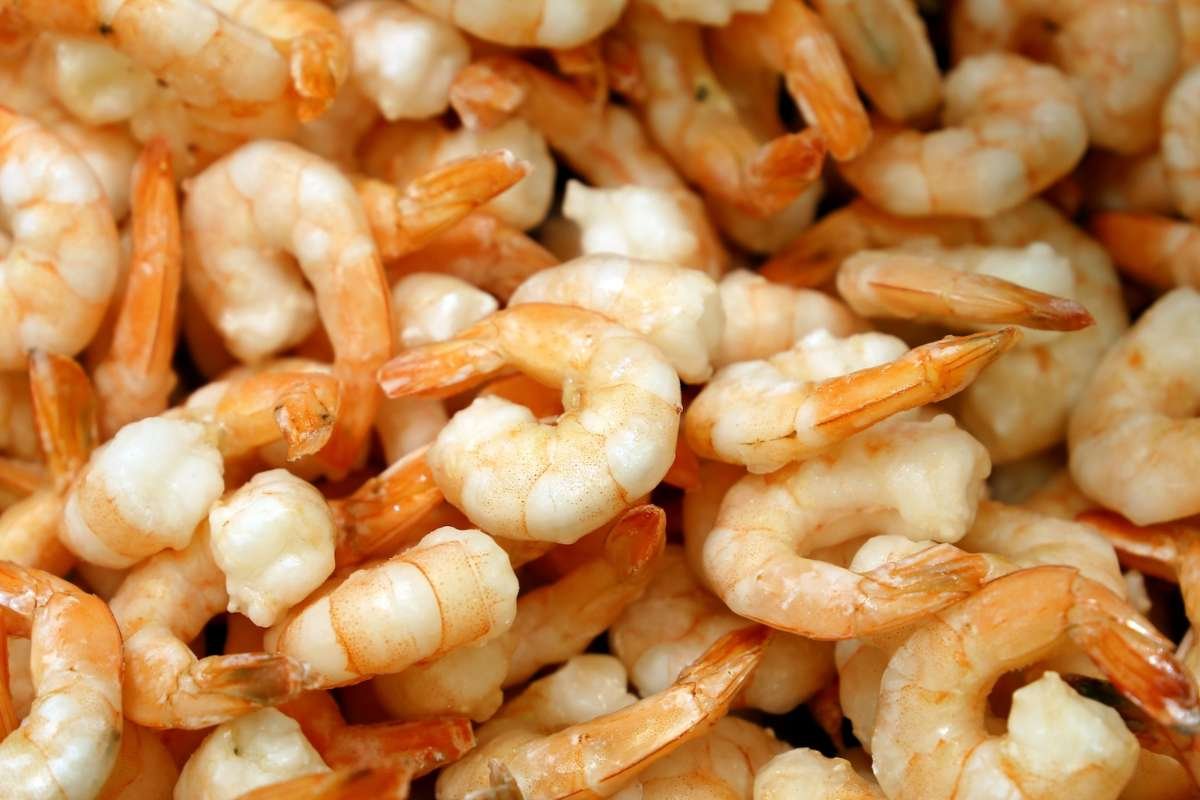Key Points:
- FDA recall: Walmart shrimp pulled over radiation contamination risk.
- Health risk: Supplier linked to cesium-137; long-term exposure can be harmful.
- Consumer alert: Check lot numbers, discard shrimp, follow FDA/Walmart guidance.
The Food and Drug Administration (FDA) has issued a Walmart shrimp recall for specific Great Value brand frozen shrimp sold at Walmart stores in 13 states, citing potential contamination with cesium-137, a radioactive isotope linked to long-term health risks. Consumers are urged not to eat the affected shrimp and to discard them immediately.
Details of the Recall
The recall covers Great Value Frozen Raw White Vannamei Shrimp, packaged in 2-pound bags and labeled as Frozen Raw Ez Peel Tail-On Farm-Raised White Vannamei Shrimp. The affected products carry the item code 7383108, lot numbers 8005540-1, 8005538-1, and 8005539-1, with a best-by date of March 15, 2027.
According to the FDA, the shrimp was processed by PT. Bahari Makmur Sejati (BMS Foods), an Indonesian supplier previously linked to contaminated seafood shipments. Though the specific lots sold at Walmart have not tested positive for cesium-137, the FDA believes the products may have been handled in unsanitary conditions that created a risk of contamination.
The shrimp involved in the Walmart shrimp recall was distributed to Walmart locations in Alabama, Arkansas, Florida, Georgia, Kentucky, Louisiana, Missouri, Mississippi, Ohio, Oklahoma, Pennsylvania, Texas, and West Virginia. Walmart confirmed that the products have been removed from store shelves and added the notice to its public recalls page.
Why Radiation Is a Concern
The FDA’s alert comes after U.S. Customs and Border Protection flagged shipping containers from BMS Foods when radiation was detected at four U.S. ports. Follow-up testing by the FDA confirmed the presence of cesium-137 in breaded shrimp products from the same supplier. Although those shipments were not released into the U.S. market, the agency expressed concern that related products, including the Walmart shrimp, may also pose a risk.
Cesium-137 is a byproduct of nuclear fission and is used in some medical and industrial devices. While very small traces of cesium-137 are sometimes found in soil, food, or air due to its widespread use, elevated levels are dangerous. Prolonged exposure can damage DNA, increase the risk of cancer, and, at higher levels, cause radiation sickness or burns.
The FDA emphasized that the shrimp under recall have not been confirmed to contain cesium-137, but precautionary action is necessary given the recent findings and the supplier’s connection to contaminated products.
What Consumers Should Do
Consumers who purchased the affected shrimp as part of the Walmart shrimp recall should check their freezer and look for the specific product codes listed in the recall. Any matching products should be thrown away immediately.
The FDA stated that the likelihood of serious health effects from consuming the shrimp is low, but repeated or long-term exposure to contaminated seafood could represent a health concern. People with questions about potential exposure should contact their healthcare provider.
Walmart has advised customers to visit its recall page for additional details or call customer service for support. The FDA also provides resources for consumers seeking more information on food recalls and radiation safety.
Broader Implications
This incident highlights the complexity of global food supply chains, where products processed overseas can reach U.S. supermarkets in large volumes. It also underscores the role of federal agencies such as Customs and Border Protection and the FDA in monitoring imported foods for potential hazards.
Food safety experts note that while recalls involving radioactive contamination are rare, the event demonstrates the need for continued vigilance in inspecting imports, particularly seafood, which is often farm-raised and shipped long distances before reaching consumers.
Visit The Lifesciences Magazine For The Most Recent Information.







